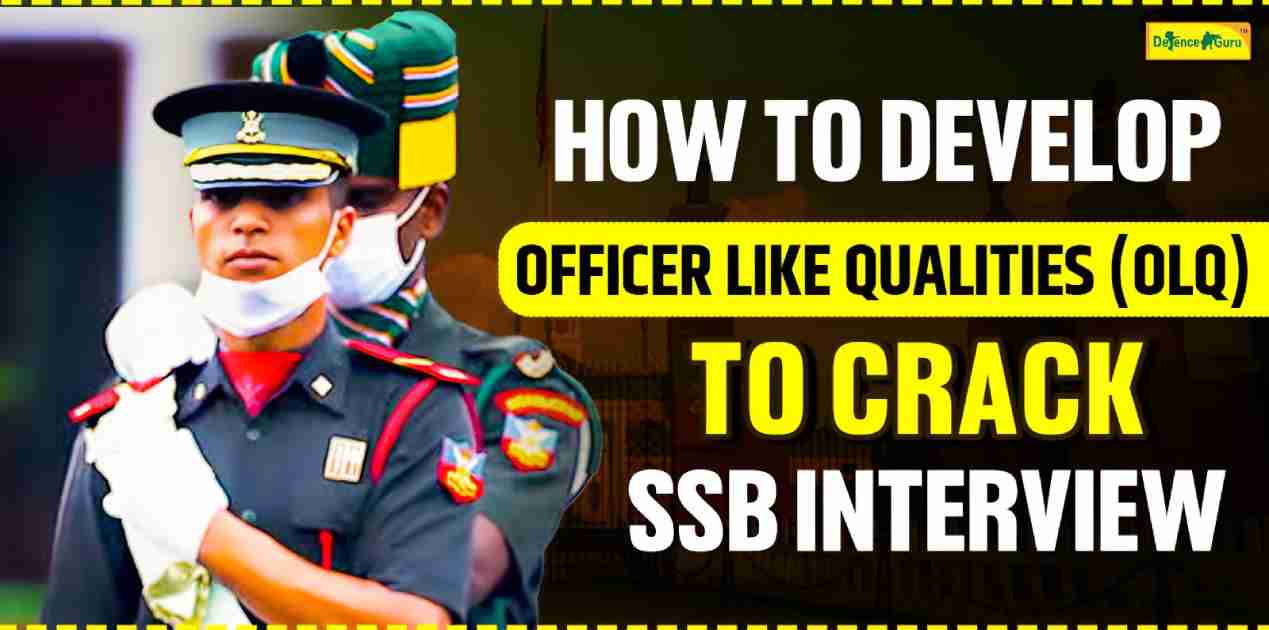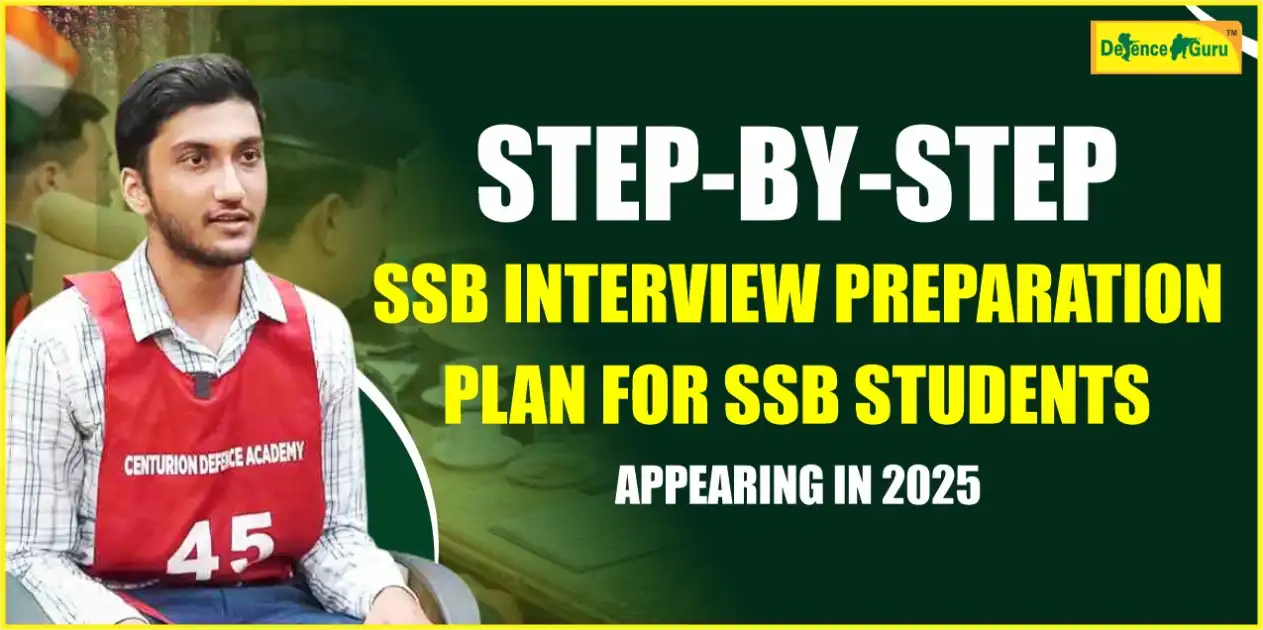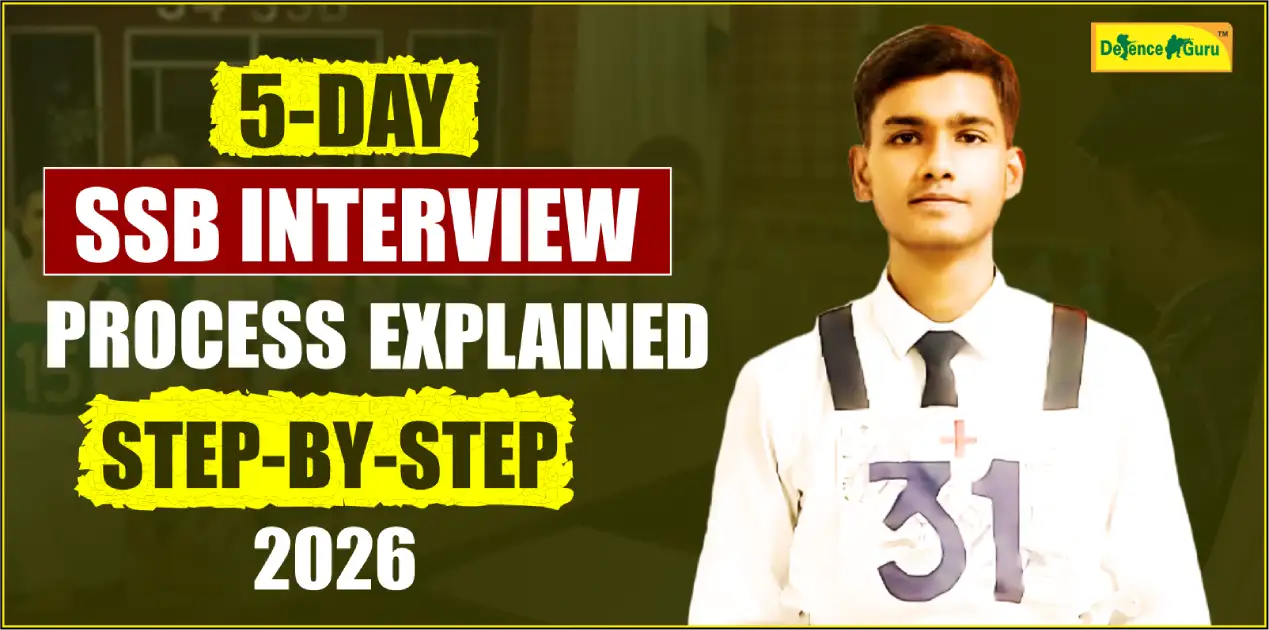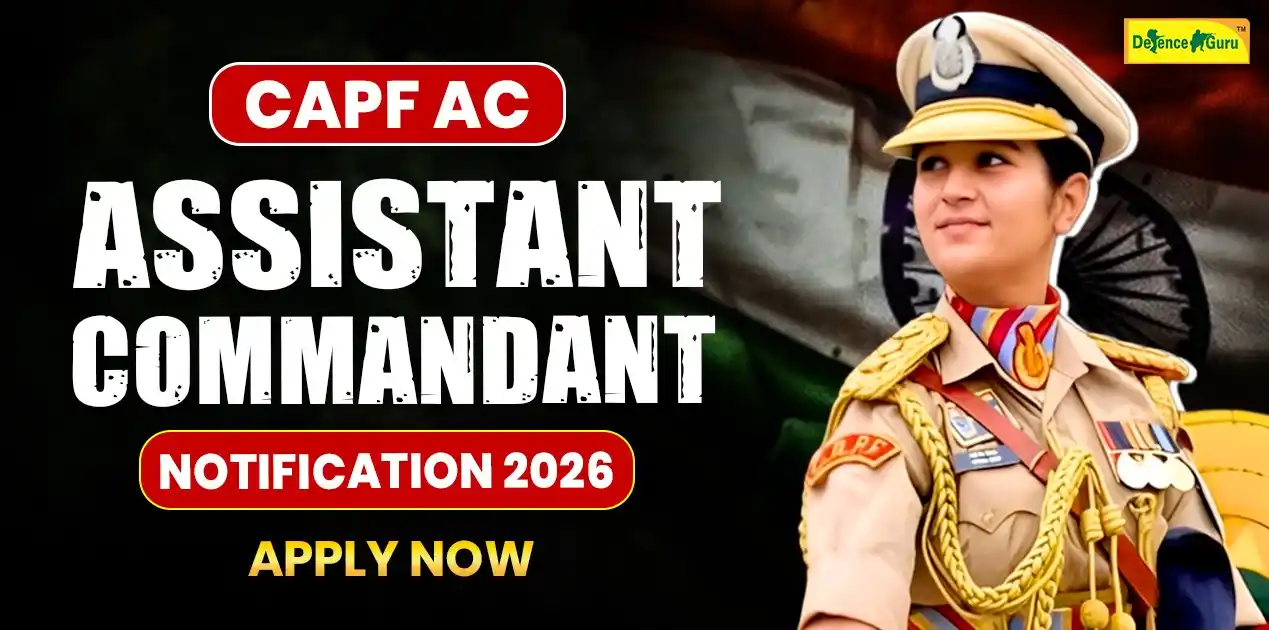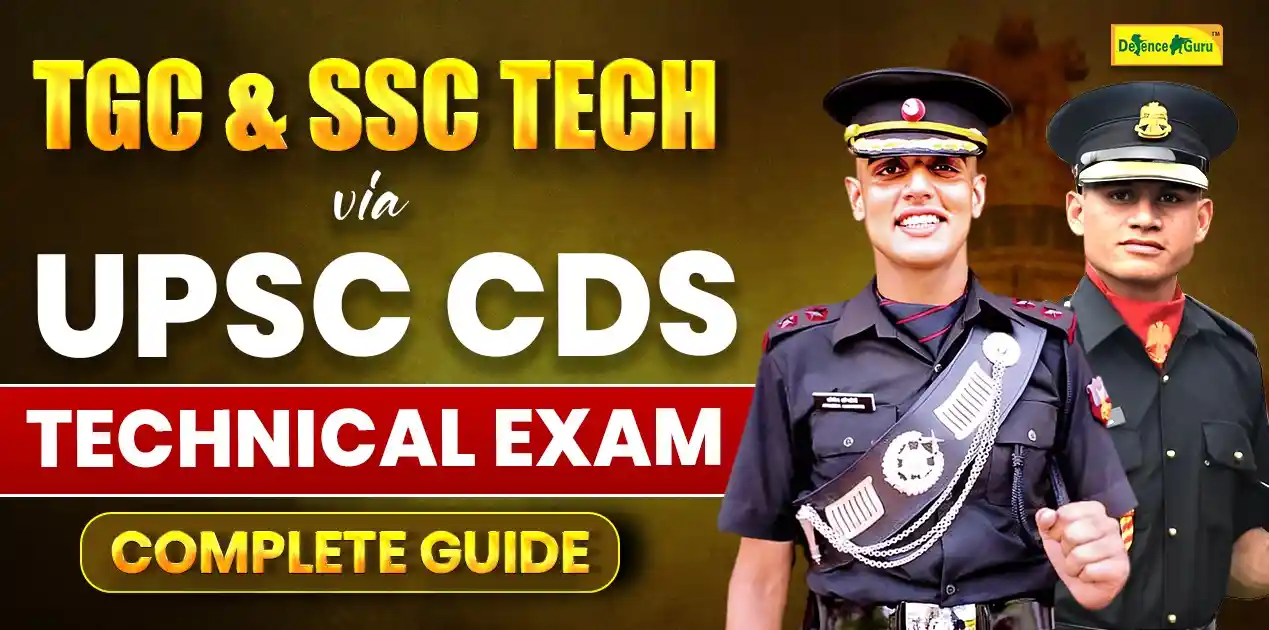Step-by-Step Guide to Building OLQs for SSB Success
The Services Selection Board (SSB) Interview is the gateway for aspirants aiming to join the Indian Armed Forces as commissioned officers. The SSB focuses on the personality and leadership attributes of the candidate. These attributes are collectively known as Officer Like Qualities (OLQs). Developing these qualities is not an overnight task—it demands self-awareness, consistent effort, and an adaptive mindset. Securing a recommendation in the SSB for any defence exam is a tough deal for many students, especially students coming from a non-defence/ military background. But here’s the truth: SSB doesn’t judge your background; it judges your potential.
In this blog, we delve deep into the 15 OLQs, categorize them for better understanding, and provide actionable strategies to help you embody these traits and ace your SSB interview.
Understanding Officer-Like Qualities (OLQs)
The OLQs are divided into four major categories:
- Planning and Organising Abilities
- Social Adjustment
- Social Effectiveness
- Dynamic Personality
Let’s explore each category in detail, along with tips to develop each quality.
Strategic thinking and organisational skills
These qualities reflect how well you manage your tasks and responsibilities and include:
a. Effective Intelligence
This is not just IQ; it’s the ability to blend the bookish knowledge and practical learning skills to the different situations a person faces in various walks of life, and therefore helps our personality to be framed in a holistic manner.
How to develop
- Solve practical problems using logical reasoning.
- Engage in puzzles, case studies, and scenario-based games.
- Practice decision-making exercises under constraints like resource constraints and time restrictions, etc.
b. Reasoning Ability
The skill of breaking down data and being able to draw conclusions from it, which are logical and useful.
How to develop
- Solve aptitude questions regularly.
- Join debate clubs or engage in discussions to analyze different perspectives.
- Try to support every claim with logic and reasoning.
c. Organizing Ability
The ability to organise resources and put them to work as and when required in an optimal way.
How to develop
- Start with organizing your daily schedule.
- Volunteer to manage group activities or events at school, college, and other places, volunteering to work in different NGO and social work if possible.
d. Power of Expression
Ability to put ideas into words and make it sense for others in a logical way and in a practical sense.
How to develop
- Maintain a daily journal or blog.
- Practice speaking in front of a mirror or record yourself in public events, in debate competitions, and elocution competitions.
- Read extensively in minimum two languages, like English and Hindi, to maintain a good vocabulary of words, because that eventually helps in speaking and writing
Social Adjustment
These traits help you become friendly, understanding, and easy to work with, have a sense of group cohesion, and have the ability to take on group tasks and work with everyone like a group leader.
e. Social Adaptability
The ease with which you fit into different groups and situations.
How to develop
- Travel, interact with diverse people, and participate in group activities.
- Be open to feedback and new perspectives.
- Practice empathy in conversations.
f. Cooperation
Ability to work on group tasks and take on leadership roles as and when needed.
How to develop
- Be an active team player in sports, projects, and group discussions.
- Prioritize group success over individual activities.
- Volunteer for responsibilities and try to do beyond your capability, which helps in building up confidence and personality, and risk-taking behaviour.
g. Sense of Responsibility
Taking tasks seriously and trying to finish the given tasks in time, and managing time as well.
How to develop
- Be accountable for your actions—own your mistakes and learn from them.
- Take initiative in family and community tasks.
- Stick to deadlines and honor commitments.
Social Effectiveness
These are critical in shaping you as a leader and team motivator.
h. Initiative
Being quick to take action and not needing reminders to get things done.
How to develop
- Look for opportunities to help and improve situations.
- Start your own small projects (e.g., community clean-up, volunteering in ngo/ social work).
- Avoid waiting for instructions—act when necessary.
I. Self-confidence
Believe in your abilities and the choices that you make!
How to develop
- Practice self-affirmation and celebrate small wins.
- Step out of your comfort zone regularly.
- Reflect on past successes during moments of doubt.
j. Speed of Decision
Thinking quickly and taking quick decisions even when situations are tricky.
How to develop
- Play real-time strategy games like chess.
- Practice timed exercises where you analyze and decide fast.
- Simulate SSB situations and time your responses.
k. Ability to Influence the Group
Being the leader under whom the group can function as one and take charge of their work.
How to develop
- Work on negotiation skills and assertive communication.
- Practice leading mock group discussions. Work on group cohesion activities; responsibility-building exercise.
l. Liveliness
Having a fun and lively attitude wherever you go makes others feel good too.
How to develop
- Maintain a healthy lifestyle—exercise, eat well, and sleep adequately.
- Practice mindfulness or meditation.
- Choose optimism deliberately; find humour in challenging situations.
Dynamic Personality
These OLQs reflect resilience, courage, and overall mental toughness.
m. Determination
Staying focused and working on the goal consistently, no matter how bad the situation gets.
How to develop
- Set long-term goals and break them into smaller milestones.
- Track your progress and learn from setbacks.
- Read biographies of resilient leaders and soldiers.
n. Courage
Having the courage to face problems without giving up.
How to develop
- Do things that scare you—public speaking, outdoor challenges, etc.
- Take responsibility even when it’s tough.
- Train your mind to handle criticism and failure positively.
o. Stamina
Being strong enough to handle both physical work and pressure.
How to develop
- Engage in regular physical activity—running, yoga, swimming, etc.
- Increase your study or work concentration spans gradually.
- Learn stress management techniques.
Practical Strategies to Incorporate OLQs
Developing OLQs isn't about ticking boxes; it’s about becoming the person who naturally demonstrates these traits. Here’s how you can nurture them in daily life:
1. Read Extensively
- Choose books on leadership, military strategy, psychology, and biographies.
- Suggested reads: “Wings of Fire” by Dr. A.P.J. Abdul Kalam, “The Art of War” by Sun Tzu, and “Leadership in the Indian Army” by V.K. Singh. Ranneeti Book by Shishir Dixit Sir.
2. Join NCC or Adventure Groups
These platforms simulate military environments and help inculcate leadership, courage, and stamina. Have a life beyond books and classes.
3. Daily Self-Evaluation
Maintain a log of:
- Tasks done
- Problems solved
- Lessons learned
- Moments of leadership and courage
This enhances self-awareness and helps track growth.
4. Engage in Group Activities
Join clubs; take part in group discussions, volunteer in NGOs, or local events. These experiences build social adaptability, cooperation, and influence.
5. Simulate SSB Tasks
- Practice PPDT (Picture Perception and Description Test).
- Take mock SRTs (Situation Reaction Test) and WAT (Word Association Test).
- Engage in mock GTO tasks with friends.
6. Grooming and Discipline
First impressions matter in SSB. Maintain hygiene, dress sharply, and follow disciplined routines. It reflects your self-respect and organizational alignment.
The Role of Mentors and Feedback
Mentors play a vital role in your SSB journey. Be it retired defense personnel, professional trainers, or seniors who have cleared the SSB—they can offer invaluable insights. Regularly seek feedback on your communication style, leadership display, and task performance.
Common Mistakes to Avoid
-
Faking OLQs: The assessors are trained psychologists. Faking traits during tests will lead to inconsistency in your performance.
-
Overconfidence or Arrogance: Confidence is good; overdoing it signals poor social effectiveness.
-
Neglecting Physical Fitness: No matter how well you score in psychology and interview rounds, poor stamina can hold you back.
Final Words
The SSB interview doesn’t demand perfection—it seeks potential and personality alignment with the Armed Forces. Officer-like qualities are not just to be studied; they must be lived. When you commit to genuine self-improvement and adopt these traits as part of your identity, not only will you become a strong candidate for the SSB, but you will also grow into a better version of yourself.
Remember, the journey to donning the olive green begins within.
Jai Hind!
Read More:
How to Prepare for SSB if you’re from a Non-Defence Background
How to Crack the SSB Interview in First Attempt: A Complete Guide for Freshers

